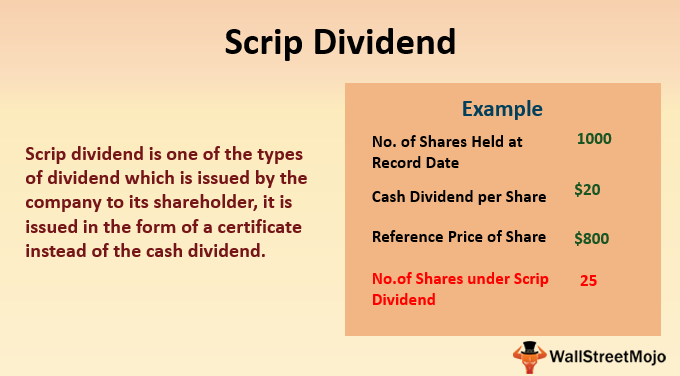Difference between Pledge Hypothecation and Mortgage Financial services Accounting services Legal services in India


In case of a Hypothecation loan, the possession of the assets is still with the borrower. Hence, the lender has to first take possession of the asset in order to recover the loan amount. Hypothecation is basically used to describe movable assets used as a security against the loan amount by the lender. For example, if a borrower has taken a loan for buying a vehicle and then defaults on the EMI payment, the lender can then proceed to take possession of the vehicle as a means of recovery. In the case of a hypothecation over bank accounts or contracts, notices should be issued to the banks or the counterparties to the contracts informing them of the charge created.
Just check if yours does and see how it affects you, especially in case of a loan against a registered housing property; if you have delayed getting the lien struck off at the Registrar of Properties, you may need the lender to re-issue the NOC to do so. However it is required that the pawnee must act in good faith and must have been unaware of the presence of a voidable contract. The principle here is that though there is a de facto contract even if it is voidable due to the reason of fraud, misrepresentation and alike. For instance if a person buys good without paying for them, there is consent, though not free and the contract in spite of being voidable will enable the party receiving the good to make a valid pledge.
In this situation the pledgee retains the ownership of the products till the pledgor repays the whole debt amount In case there is default by way of the borrower, the pledgee has a proper to sell the goods in his ownership and regulate its proceeds towards the amount due . A few examples of the pledge are gold/jewelry loans, increase towards goods,/inventory, advances in opposition to national saving certificates etc. Is used for creating charge against immovable property which includes land, buildings or anything that is attached to the earth or permanently fastened to anything attached to the earth . The best example of when the mortgage is created is when someone takes a Housing Loan / Home Loan.
In case of a Pledge, the lender holds on to certain goods or items such as gold, stock or certificates till the time the borrower makes the complete payment of the loan amount. If in case the borrower fails to make the payment on time, the lender can then proceed to sell off those items kept as security as a means to recover the loan amount. We all take loans to fulfill our requirements at some point of time in our lives. Loans can be taken from different financial institutions like banks, NFBCs, etc.
Specimen Of Joint Venture Agreement
The nature of the contract is one of security where this security is liable in case of default by the debtor. In case of a pledge by hypothecation, if the debtor defaults in the repayment of the debt, there is no right vested with the creditor to enter the premises of the debtor to seize the goods held as security. If the creditor wants to exercise this power, he either has to seek permission from the debtor or get an order from a competent court in this regard. When goods are pledged via hypothecation, the goods remain in the custody of the debtor even after the payment is advanced by the creditor. Herein, it is deemed that the delivery of security has taken place, but actually, the possession of the security remains with the debtor.
What is the difference between lien and pledge?
A pledge arises where there is a delivery of goods to a creditor for the purpose of securing a debt due to him by their owner. A lien is a right to retain goods to secure payment. Both a pledge and lien involve a bailment.
Loan against property gives you access to immediate funds by placing your property as collateral… This distinctiveness of the Contract of pledge arises from its features. The Indian Contract Act Chapter discusses the Contract of Pledge elaborately under the head of chapter IX Of Bailment sub head- Bailment of Pledges the relevant sections pertaining to the study of this concept are section 172 to section 179. The Indian Contract Act of 1872 is the act governing the formation and enforcement of contracts in India and its territories. The act lays down provisions regarding the essentials of the contract such as offer, acceptance, consideration etc.
You may have bought home insurance and home loan insurance, along with the home loan product. If both these policies are bought from the same lender, you may not have to make further visits to bank branches. However, if that is not the case, you will have to get in touch with your insurer. Note here that the bank would ask you to sign an undertaking, stating that it has handed over the original property documents to you on the specified date and that it was no more responsible in case something were to happen to the documents. What if you took an NOC in the past but lost it later and need it now? First, an FIR is normally required to be lodged about the loss of the NOC.
Do remember that a lien of hypothec is registered in the local Registrar’s Office and the property title transfer will not be clear till you get it withdrawn. This would mean the property is now legally yours and you do not owe the bank anything. Do not forget to take a letter from the bank stating the same. Thus, considering Section 59 of the difference between lien and hypothecation TP Act when there is a mortgage other than a mortgage by store of the title deeds, it tends to be influenced simply by an enrolled instrument. Assignment occurs when the owner of a contract, known as the assignor, gives a contract to another party, known as the assignee. The assignee assumes all responsibilities and benefits of the contract.
In pursuance of a contract
The Contract Act is both an amending as well as a consolidating act, and it is not exhaustive of the Law of Contract. Options are instruments which derive their validity from an underlying asset. External Commercial Borrowings («ECB’s) are commercial loans raised by eligible resident entities solely for commercial purposes, from recognised non-resident entities. A cheque is a widely used method of payment and post-dated cheques are frequently used in various transactions in business life. While a borrower fails in paying the dues, asset realisation may be expensive.
- HP termination refers to an application for making an entry of termination of agreement of hire purchase, lease or hypothecation agreement in the certificate of hypothecation.
- This website is intended to provide a general guide to the valuer World and the services it provides.
- In Blundell Leigh vs. Attenborough , the plaintiff had delivered a ring to a jeweller and requested him to value the ring for the purpose of a pledge.
- Mortgage is used for immovable assets such as a house, building or a piece of land.
- Some examples of pledges are Gold /Jewelry Loans, Advance against goods,/stock, Advances against National Saving Certificates, etc.
Thus even though he was not in the possession of the jewels at the time of making the pledge, it was still valid. B then sued C for recovery of jewels stating that the jewels which she gave top a was only a gratuitous bailment and he was not entitled to do anything with them. When he subsequently advanced money it was not a pledge as he was not in the possession of the goods. When the matter went to the court, the trial court held that there was no valid pledge between A and B as the jewels were not in the possession of B at the time of pledge being made. Time of Delivery- Under a contract of pledge the delivery of possession and the payment of money need not always be simultaneous. A pledge can even be given subsequently after advance has been made.
The Indian Contract Act 1872 defines the Contract of Pledge as:
A case here in point is Bank of Bihar v State of Bihar where the pledgee bank advanced loan to the pledgor on the pledge of sugar bags whose constructive delivery was made by handing over of the key of the godown where these were stored. However these were then seized by the state of Bihar through rationing officer and district magistrate. Thereafter the pledgee, the Bank, filed a suit for the recovery of the sugar bags. It was held that the act of the State of seizing the goods will not deprive the pledgee of his rights of the pledge and that he was still liable to the amount he advanced.
How can you tell the difference between a lien hypothecation and a mortgage?
The difference between pledge, hypothecation, lien, mortgage, and assignment lies in the security charge that can be created on any asset held by a lender against the money lent (usually called the collateral). The type of asset charge defines whether the agreement can be classified as a pledge, lien, or mortgage.
Then a request to the lender needs to be made with a copy of FIR and all the loan details. But getting a duplicate NOC may take time and effort to follow-up. Although all lenders are supposed to send the NOC to the customer through registered post after the loan has been paid off, one may still fail to get it because of delayed dispatch and change of address etc. C) all other expenses incurred by him in respect of the pledged goods. Hypothecation is to be enlisted under Section 125 of the Indian Companies Act, 1956 when the hypothecator is an organization, while no such arrangement exists if there should be an occurrence of charges via pledge. The borrower needs to present a stock assertion at endorsed stretches according to terms of assent to the bank.
Stay Updated with Muthoot Finance
If there should be an occurrence of pledge, the resources are in the care of the bank, genuine or useful, though on account of hypothecation the resources are in the care of the borrower. This website is intended to provide a general guide to the News paper and the services it provides. The News paper accepts no responsibility for loss occasioned to any person acting or refraining from acting as a result of material contained in this website.
Pledges can be made by individuals, organizations, or governments, and they are often made in the context of a campaign or fundraising effort. A lien is simply a possessory form of security interest; when possession of the property is lost, the lien is released. If a beneficial owner intends to create a hypothecation on a security owned by him he may do so in accordance with the provisions of sub-regulations to . Subject to the provisions of the pledge document, the pledgee may invoke the pledge and on such invocation, the depository shall register the pledgee as beneficial owner of such securities and amend its records accordingly. Records of approval, notice, entry and cancellation of pledge or hypothecation, as the case may be. Thus, financing exchanges in Maharashtra were dependent upon phenomenal high stamp obligations.
If there is no actual or constructive delivery of security at the time of the creation of debt, then the contract cannot be deemed as a contract of pledge. Actual delivery means that the security is physically handed over to the pledgee. On the other hand, constructive delivery means where the title in the security is transferred to the pledgee but the goods are not transferred physically into his possession.
Some bankers too may find it interesting and helpful in their internal exams / interviews. Read the latest press releases, news and blog articles published by Muthoot Finance.

The pledgee will educate the pledger and the pledgee individually of the section of making of the promise. The stamp obligation on such instruments is currently cover at a most extreme stamp obligation of INR 1,000,000 . Intangible assets, being know-how, patent, trade mark, licence , franchise or any other business or commercial right of similar nature.
What is the difference between hypothecation and assignment?
In case of Hypothecation, possession of the asset remains with the borrower. Loan is given on security of immovable property, in case of Mortgage. Assignment is used when the owner of a contract (Assignor) handovers a contract to another party (Assignee).